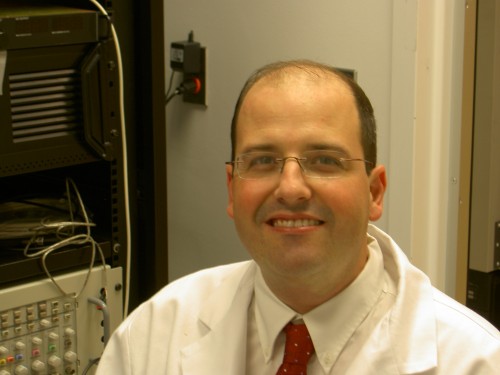The natural pacemaker consists of dedicated cells - pacemaker cells - which are responsible for the contraction of the heart muscle. A malfunction in their activity can disrupt the function of the heart and lead to weakness, dizziness, fainting, heart failure and in some cases even death

The scientific journal Nature Biotechnology reports on a biological pacemaker developed by an Israeli-Canadian research group in which Prof. Lior Gepstein from the Rappaport Faculty of Medicine at the Technion and the Rambam Medical College is a partner. The new pacemaker, whose effectiveness was demonstrated both in cultures and in live rats, has many advantages over electronic pacemakers.
Prof. Gepstein, a faculty member at the Rappaport Faculty of Medicine at the Technion, heads the cardiology department at the Rambam Medical College. He is a world-renowned expert in the field of stem cells, and in particular in the use of stem cells to repair heart defects. One of his latest studies, in which a new approach to the treatment of heart rhythm disorders using light was presented, was published at the beginning of the year in the same scientific journal (Nature Biotechnology).
The natural pacemaker consists of dedicated cells - pacemaker cells - which are responsible for the contraction of the heart muscle. A malfunction in their activity can disrupt the function of the heart and lead to weakness, dizziness, fainting, heart failure and in some cases even death. Over the years, alternatives to this mechanism have been developed, i.e. artificial methods of intervention, chief among them the electrical pacemaker. This device corrects the disrupted activity of the natural rhythm mechanism by means of electrodes inserted into different areas of the heart.
However, the electric pacemaker has many limitations, including the need for an invasive surgical procedure, the risk of infection, the lack of hormonal sensitivity, and a limited duration of activity (due to the depletion of the batteries). Furthermore, when it comes to treating children, whose heart is still growing, the electrical pacemaker does not adapt itself to the gradual increase in heart volume.
One of the promising alternatives to the electrical pacemaker is the biological pacemaker, based on the use of cells similar in function to the natural pacemaker cells. However, due to technological limitations, an effective method for the efficient and reliable creation of biological pacemakers has not yet been developed. This is where the Canadian-Israeli research group comes in with the news now published in Nature Biotechnology.
The group of researchers used knowledge learned in the field of developmental biology to develop a differentiation protocol to create pacemaker cells from human embryonic stem cells. Embryonic stem cells are cells that can potentially become adult cells of hundreds of different types such as muscle cells and bone cells. As mentioned, the researchers were able to direct the embryonic stem cells so that they develop into heart cells of the type of pacemaker cells. Experiments conducted in the laboratory demonstrated the effectiveness of these cells as a replacement for the natural pacemaker cells.
According to Prof. Gepstein, "The pacemaker cells created from the embryonic stem cells exhibit molecular, electrical and functional properties characteristic of human pacemaker cells. Therefore, there is an effective and promising alternative to the natural pacemaker cells in case they go wrong. This development is significant both in the research aspect, as it will allow the heart to be studied in new ways, and in the applied aspect - as we are presenting here a 'production line' for an unlimited pool of pacemaker cells to treat patients suffering from heart rhythm problems."
After the experiments on tissues in the laboratory, the researchers moved on to experiments on rats, where the effectiveness of the new approach was demonstrated in the living body. The implantation of the pacemaker cells restored the normal heart rhythm to 6 out of 7 rats tested. According to Prof. Gepstein, "in the past we have already used such cells, but until now they were not produced in a 'clean' manner, that is, as a mixture of pacemaker cells and other heart cells. Here, together with our Canadian partners, we present a method for producing a pure population of pacemaker cells, and as mentioned, prove that they work well as a replacement for the damaged natural pacemaker cells."
Prof. Gepstein and his partner at the Technion and Rambam, Dr. Udi Nusinowitz, point out that the research was led by Prof. Gordon M Keller from the McEwen Center for Regenerative Medicine at the University of Toronto. Other partners in the study are researchers from the University Health Network in Toronto and York University in Toronto.
The research took place as part of the collaboration between the Technion and the Canadian University Health Network (UHN) centered in Toronto. The two bodies established an international center for innovation in cardiovascular research about three years ago, which aims to develop new ways to treat heart diseases. As mentioned, the project from the Israeli side is led by Prof. Lior Gepstein.
For an article in the scientific journal Nature Biotechnology
